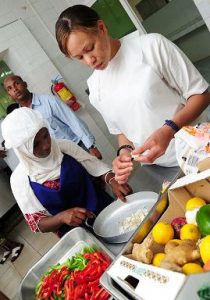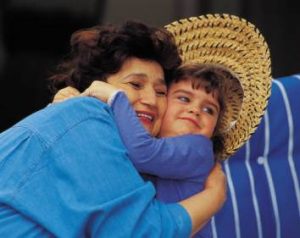“How can you believe what I say?”
John 5:47
Leo Buscaglia claims that “you can’t learn anything without having to readjust everything that you are around the new things that  you’ve learned.” The Jews to whom Jesus speaks in today’s gospel are unwilling to readjust. They accepted the testimony of Moses, but not that of Jesus and his Father. They could have searched the scriptures to determine Jesus’ authenticity, but their minds were closed. They accepted someone who comes in his own name but did not accept someone who came in his Father’s name. They relished praise from one another, “yet [did] not seek the glory that comes from the One God.”
you’ve learned.” The Jews to whom Jesus speaks in today’s gospel are unwilling to readjust. They accepted the testimony of Moses, but not that of Jesus and his Father. They could have searched the scriptures to determine Jesus’ authenticity, but their minds were closed. They accepted someone who comes in his own name but did not accept someone who came in his Father’s name. They relished praise from one another, “yet [did] not seek the glory that comes from the One God.”
How willing are we to learn new things and readjust the old? Do we allow people to change? When we hear good things about someone we dislike, do we rearrange our resentments to let in the good news, or do we say “it can’t be true”? When we receive affirmation, do we accept it or deny our gifts? When new people or circumstances come into our lives, do we make room? Are we willing to change when change deepens our life of faith? If we’re unwilling to change, will we have the capacity to believe the new things God wishes to tell us?
Lord, help me to readjust.
Did you ever notice that when you’re fully engaged in an activity, you rarely lose energy; and if you do, it’s a good kind of tiredness? In your home, in your church, in your everyday activities, are you fully engaged? If so, you’ll find yourself becoming stronger, more energized—actually even more engaged.
 Those who are fully engaged in their faith, allowing it to be involved in every aspect of their lives find satisfaction in life. Belief in religious truths does not automatically make a person spiritually committed. We need to incorporate our beliefs in our daily lives. Statistically only one in seven people are fully spiritually committed (Gallup Poll). Can we raise that percentage by helping people do what they do best? When people are permitted to do what they do best, they are nearly three times more likely to be engaged.
Those who are fully engaged in their faith, allowing it to be involved in every aspect of their lives find satisfaction in life. Belief in religious truths does not automatically make a person spiritually committed. We need to incorporate our beliefs in our daily lives. Statistically only one in seven people are fully spiritually committed (Gallup Poll). Can we raise that percentage by helping people do what they do best? When people are permitted to do what they do best, they are nearly three times more likely to be engaged.
What are your talents and strengths? What are the talents and strengths of your family and friends? What do you and they love to do? Just do it.
 Rejection is the deepest thorn, the longest nail, the heaviest cross. It pushes me toward self-doubt, uncertainty, and fear. I stand on the outside and look in.
Rejection is the deepest thorn, the longest nail, the heaviest cross. It pushes me toward self-doubt, uncertainty, and fear. I stand on the outside and look in.
I can empathize with Jesus who was rejected repeatedly. He invited a rich young man to follow him, but the call was rejected. His disciples betrayed him, abandoned him, and denied him. Crowds yelled “Crucify him!” He was called a devil, and he was run out of town. Worst of all, he experienced becoming sin and feeling abandoned by his Father. The rejection that emptied him, that scraped his soul, that exhausted his spirit did not make him bitter or resentful. Rather his response ever was and ever will be unconditional love, unconditional acceptance.
Acceptance is cool water on a hot day, a warm blanket and fire on a winter night, festive food, a meaningful hug. Acceptance allows me to be who I am and want to be more. I feel secure, surrounded by love.
Demonstrate acceptance today. Someone will be glad you did.
 An Inconvenient Truth by Al Gore and our unusual winter weather suggest that we need to apologize to God and Planet Earth for the misuse of land, water, and air. The dangers of climate change should be a call to prayer and action.
An Inconvenient Truth by Al Gore and our unusual winter weather suggest that we need to apologize to God and Planet Earth for the misuse of land, water, and air. The dangers of climate change should be a call to prayer and action.
Let us pray:
Creator God, we praise and thank you for creation. Your infinite creativity abounds, and we know only a tiny portion of the numerous species of flowers, plants, insects and animals. Help us preserve every creature, even the tiniest, from extinction. Give us the wisdom to find alternative fuels and resources so as not to deplete the earth’s bounty. Deliver us from the tragic mistakes we’ve made through pollution and waiting too long to stop the ruin of ecology. Forgive us, and help us today to ensure a tomorrow.
“Truly I tell you, just as you did it to one of the least of these who are members of my family, you did it to me.”
Matthew 25:40 NRSV
 How can you tell if you really love God? Is there any way of knowing whether you’re on the road to holiness? Today’s Gospel from Matthew, the story of the Last Judgment, gives us the answers by putting an equal sign between your love for God and your love for your neighbor.
How can you tell if you really love God? Is there any way of knowing whether you’re on the road to holiness? Today’s Gospel from Matthew, the story of the Last Judgment, gives us the answers by putting an equal sign between your love for God and your love for your neighbor.
Is your neighbor hungry? Feed him. Is your sibling thirsty? Give her a drink. Do you have relatives who are ill? Visit them. These simple common-sense acts of love toward others equal love of God. Your love for God is measured by the concrete love expressed to your neighbor. Do we take seriously the fact that what we do for one of the least, we do for God? Conversely, do we realize that what you do for God affects ourselves and the rest of the world?
Will someone know God’s compassion today because of me? The Christian life is one of service; its reward is heaven. Someday we will hear “Come, you that are blessed by my Father, inherit the kingdom prepared for you from the foundation of the world; for I was hungry and you gave me food, I was thirsty and you gave me something to drink.” (Mt. 25:35)
 Remember Levi? Yes, that one—the tax collector. I really like that guy. He had a profession, a lucrative position, the esteem of his colleagues. Yet when he heard “Follow me,” he left everything. Levi’s decision was a step down the socio-economic ladder, one that took away much of his security. Perhaps his family thought he had gone mad. Yet in the midst of Levi’s decision to let go of everything to follow Jesus, he threw a party. The “great reception” deadened the pain perhaps, or he just wanted to enjoy himself one more time before his money ran out. For whatever reason, Levi celebrated.
Remember Levi? Yes, that one—the tax collector. I really like that guy. He had a profession, a lucrative position, the esteem of his colleagues. Yet when he heard “Follow me,” he left everything. Levi’s decision was a step down the socio-economic ladder, one that took away much of his security. Perhaps his family thought he had gone mad. Yet in the midst of Levi’s decision to let go of everything to follow Jesus, he threw a party. The “great reception” deadened the pain perhaps, or he just wanted to enjoy himself one more time before his money ran out. For whatever reason, Levi celebrated.
Lord, when you call “Follow me,” help me to respond at least half-heartedly. Then throw a little party. Discipleship is something to celebrate.
As ashes were placed on our foreheads, did you hear “Remember you are dust, and to dust you shall return?” Perhaps we think of ourselves as mere dust, akin to the dust balls under our bed. But what if we heard, “Remember you are stardust, and to the Great Radiance you will return?” Would we come out from under our bed and look to the stars? Would Lent take on a glow?
 Everyone and everything was born 13.7 billion years ago at the Big Bang or Great Radiance. The globs of hydrogen clumped together and ignited into stars. All the elements that comprise our bodies came from that stardust. “The original creative light from which the universe was born remains in everything. Science has confirmed the truth of this, with the discovery that every created thing contains photons that are the source of light and literally radiant” (Healing the Future, Dennis Linn, Sheila Fabricant Linn, Matthew Linn).
Everyone and everything was born 13.7 billion years ago at the Big Bang or Great Radiance. The globs of hydrogen clumped together and ignited into stars. All the elements that comprise our bodies came from that stardust. “The original creative light from which the universe was born remains in everything. Science has confirmed the truth of this, with the discovery that every created thing contains photons that are the source of light and literally radiant” (Healing the Future, Dennis Linn, Sheila Fabricant Linn, Matthew Linn).
I’m a star! I’m made from stardust! I’m glowing! I’m vibrating with radiance! I’m light! How will your Lent be different remembering you’re on your way to the Great Radiance, glowing brilliantly the whole way?
The Holy Spirit has inspired me to make 2 Cor. 8:9 (in Pope Francis’ Lenten letter) as my mantra for this Lent. Based on self-knowledge of my visual learning manner, I find it more fruitful to memorize the Scripture by accenting the “connecting phrases” in italics…
For you know…the Grace of our Lord Jesus Christ,
That though…he was rich
Yet for your sake…he became poor,
So that…by his poverty, you might become RICH!
Why, you may ask? The Spirit uncovers or helps me to know (experience) the mysteries of God in the “RICHES.” As the connectors are an aid in understanding God’s logic, so this mantra is a “connector” to the several “mysteries of God” embedded therein:
Incarnation … Paschal Mystery … Divine Indwelling … filiation with the Father through Jesus our Brother …. “Easter Wings” by George Herbert
Perhaps someone else may wish to share insights from this Scripture…or some passages from THE GOSPEL OF JOY that really relate to this Scripture. I am grateful to share my enthusiasm with you.
 This morning I will go downtown to Michael’s Café and Bakery, the best place in the state for the perfect paczki. Although I’m already salivating over the lemon-filled ones, my main purpose is to sing paczki carols, parodies to familiar tunes about the delectable gems baked fresh this morning. Business persons on a mission to pick up dozens for their office personnel are surprised to see and hear a group of us singing away. They smile broadly and give a little laugh. Sometimes they join the singing while they wait their order. Catching our positive energy, they’re reminded that humor and surprise add to life. Singing paczki carols becomes a little way to bring about the Kingdom so full of life and laughter and good things. May there be paczki in heaven.
This morning I will go downtown to Michael’s Café and Bakery, the best place in the state for the perfect paczki. Although I’m already salivating over the lemon-filled ones, my main purpose is to sing paczki carols, parodies to familiar tunes about the delectable gems baked fresh this morning. Business persons on a mission to pick up dozens for their office personnel are surprised to see and hear a group of us singing away. They smile broadly and give a little laugh. Sometimes they join the singing while they wait their order. Catching our positive energy, they’re reminded that humor and surprise add to life. Singing paczki carols becomes a little way to bring about the Kingdom so full of life and laughter and good things. May there be paczki in heaven.
 While watching the Olympics recently, haven’t you heard about the “big mistakes”? Someone was behind .04 seconds! Huge! If a hundredth of a second can have so much meaning with such great or such disastrous results, what about the seconds in our day? On February 3, we at St. Richard Parish buried Deacon Tim Worline, who served the parish over 30 years. The homily spoke about the seconds of his life and how he used each one so well. How true it was: Deacon Tim was a man of integrity in every aspect of his life—family, business, Church. And he really did make use of every second, as he never stopped reading, learning, developing new skills and hobbies. The vote on his life was unanimous: all agreed Tim lived every minute of his life. What about us? The seconds put into needed rest and relaxation are important; however, we need to be careful not to make the big mistake of not pushing ourselves toward the ultimate goal—transformation of ourselves and our world into the Body of Christ.
While watching the Olympics recently, haven’t you heard about the “big mistakes”? Someone was behind .04 seconds! Huge! If a hundredth of a second can have so much meaning with such great or such disastrous results, what about the seconds in our day? On February 3, we at St. Richard Parish buried Deacon Tim Worline, who served the parish over 30 years. The homily spoke about the seconds of his life and how he used each one so well. How true it was: Deacon Tim was a man of integrity in every aspect of his life—family, business, Church. And he really did make use of every second, as he never stopped reading, learning, developing new skills and hobbies. The vote on his life was unanimous: all agreed Tim lived every minute of his life. What about us? The seconds put into needed rest and relaxation are important; however, we need to be careful not to make the big mistake of not pushing ourselves toward the ultimate goal—transformation of ourselves and our world into the Body of Christ.
Spend some seconds today more wisely for the Kingdom.


